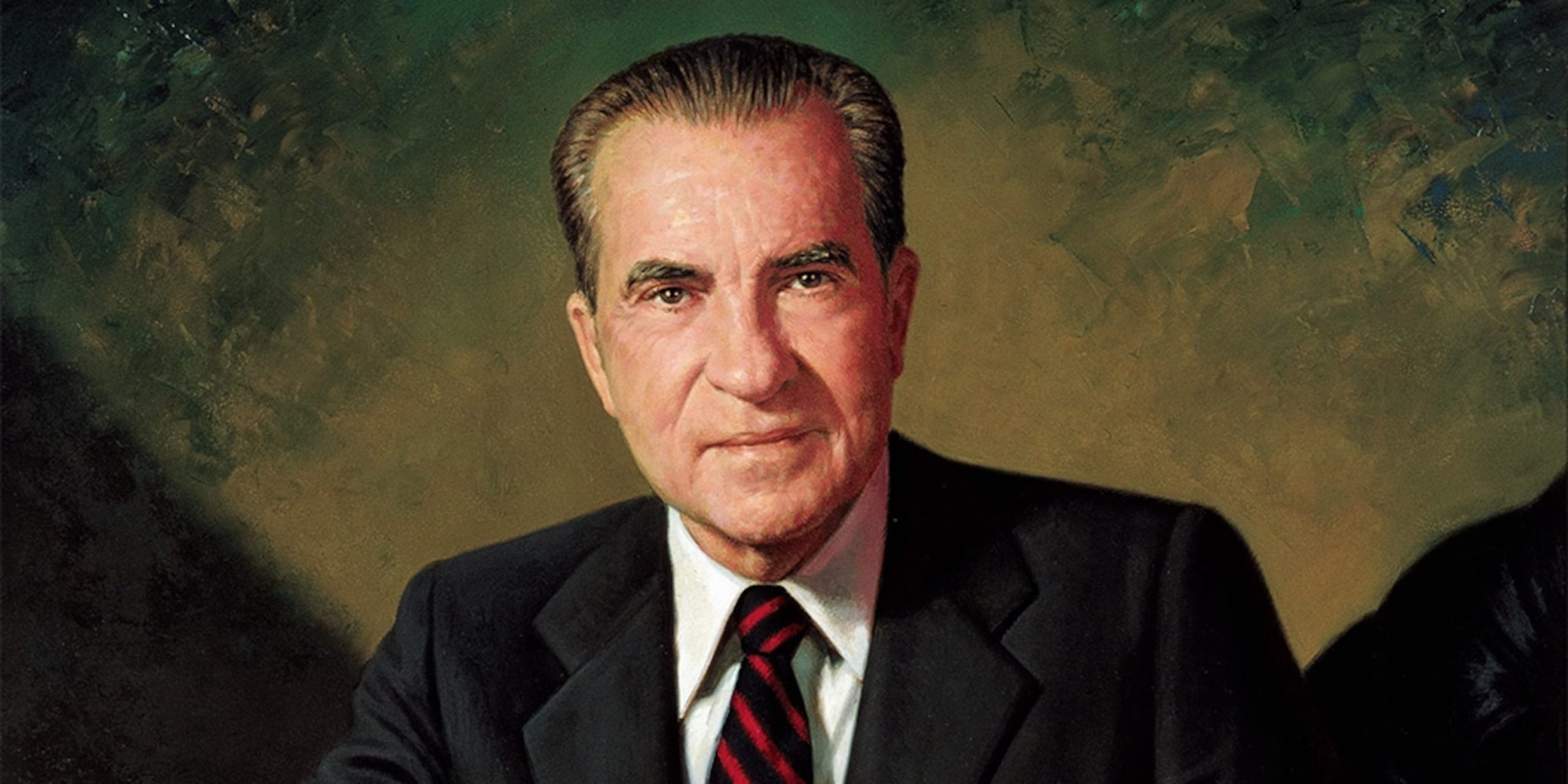In 1973, the Senate investigation into Watergate revealed the Huston Plan. It was a secret scheme led by Tom Charles Huston, who worked for the White House.
The plan aimed to spy on and arrest left-wing radicals and anti-war protesters using illegal methods like breaking into homes and tapping phones, all in the name of national security. President Nixon gave his initial approval but later withdrew it after FBI Director J. Edgar Hoover objected.
During Nixon’s interviews with David Frost in 1977, he caused a stir by claiming that actions he authorized for national security or domestic order were legal just because he was the president. This sparked outrage and led to a closer examination of Nixon’s view that presidential decisions could ignore legal rules.

President Nixon
Nixon’s defense of his actions under the Huston Plan, despite acknowledging the illegality of burglary, underscored a belief in expansive presidential powers during times of perceived crisis. This stance was viewed by many as a dangerous assertion of executive privilege, suggesting that the president could act above the law if national security or social order were at stake.
The fallout from Nixon’s assertions contributed to a national debate over presidential accountability and the limits of executive authority. While Nixon argued he wasn’t claiming immunity from the law, his justification resonated with a minority of conservative legal scholars who believed in bolstering presidential powers, viewing congressional and judicial oversight as encroachments on executive authority.
This ideological divide persisted beyond Nixon’s presidency, influencing subsequent generations of legal thinkers and policymakers. The Reagan administration, supported by a cohort of legal minds shaped by Nixon-era controversies, advanced theories like the “unitary executive,” which sought to minimize congressional influence over executive branch agencies.
This legal philosophy, championed by figures like Chief Justice Roberts and Justices Thomas, Alito, Gorsuch, and Kavanaugh, reflects a lasting legacy of Nixon’s presidency. Critics argue that it facilitates presidential overreach, potentially shielding executives from legal consequences for unlawful actions under the guise of national interest.
The ramifications of Nixon’s stance on executive power continue to resonate, particularly in recent Supreme Court decisions and legal debates surrounding presidential authority. The enduring influence of Nixon’s defense of the Huston Plan underscores broader concerns about the balance of power between branches of government and the potential implications for constitutional governance in the United States.























